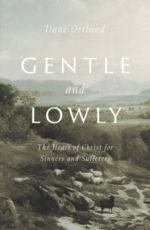save
$1.20The Way to True Happiness: Pocket Puritans Series (Ralph Venning)
$4.80$6.00
Puritan Ralph Venning (1621-74) here proposes that true happiness is only to be found in understanding and doing the will of God. Venning was admired not only for his preaching but also for the consistency of his life. This, together with his powerful call to a pleasure-obsessed world to seek happiness only where it may be found, are perhaps the reasons why his writings continue to speak so powerfully to us today.
In this edition, English spellings have been updated as have some of Venning’s seventeenth century idioms, while quotations from Latin sources have been translated for the benefit of the reader unfamiliar with the language. The text, however, remains substantially Vennings’ and has not been abridged.
In stock
The Way to True Happiness
In the Pocket Puritans Series
Puritan Ralph Venning (1621-74) here proposes that true happiness is only to be found in understanding and doing the will of God. Venning was admired not only for his preaching but also for the consistency of his life. This, together with his powerful call to a pleasure-obsessed world to seek happiness only where it may be found, are perhaps the reasons why his writings continue to speak so powerfully to us today.
In this edition, English spellings have been updated, as have some of Venning’s seventeenth century idioms. Quotations from Latin sources are translated for the benefit of readers unfamiliar with the language. The text, however, remains substantially Venning’s and has not been abridged.
Endorsement
“To read the work of a Puritan doctor of the soul is to enter a rich world of spiritual theology to feed the mind, heart-searching analysis to probe the conscience, Christ-centered grace to transform the heart, and wise counsel to direct the life. This series of Pocket Puritans provides all this in miniature, but also in abundance.”
— Sinclair B. Ferguson, Westminster Theological Seminary, Philadelphia PA
About the Author
Ralph Venning was born in Devon around the year 1621 to Francis and Joanne Venning, and spent his childhood and early adult life in the vicinity of Tavistock, where his father was a yeoman farmer. There Venning encountered the Puritan preacher, George Hughes, under whose diligent pastoral ministry he was converted, along with two other young men who also went on to become gospel ministers. Venning later acknowledged the debt he owed to Hughes, whose devotion of time and energy both to Venning’s conversion and early discipleship, led to him describing Hughes in affectionate terms as his spiritual ‘father’.
His academic and, perhaps, ministerial potential having been recognised, Venning left Devon for Cambridge. He was admitted to Emmanuel College as a ‘sizar’ in April 1643—a category of student which would have required him to carry out menial jobs around the college in part payment of his fees. Despite these additional duties, he also served as chaplain in the Tower of London. There he found the time to write and publish two books. Venning completed his BA and MA degrees before entering the preaching ministry.
Ministry in London
Apart from a short period in Devon, Venning ministered primarily in London, in fellowship with both Independent and Presbyterian preachers such as Joseph Caryl, John Owen, Richard Baxter and George Griffith. Indeed, London was a hub for godly preaching at that time. Venning, although known for his moderation and as one who avoided partisanship, was unequivocally committed to the goals of the Reformation and of the ‘Puritan revolution’, and served in a number of capacities during the Commonwealth period and under the Protectorate of Oliver Cromwell. These included the Commissions for assessing candidates for chaplaincy posts in the navy and for the County of Surrey, as well as promoting evangelical enterprise amongst the indigenous peoples of New England. Of greatest importance to Venning, however, was the promotion of godliness in every aspect of daily life.
During the 1650s Venning was primarily occupied as Lecturer at St Olave’s, Southwark. The church was fully demolished by 1928, and Olaf House, part of London Bridge Hospital, now occupies the spot. Venning also ministered at St Mary Magdalen from 1657. In 1661 he married Hannah Cope, a widow; they had at least two children.Refusing to conform to the 1662 Act of Uniformity, Venning was ejected from this post. In the years that followed, he served as co-pastor with Robert Bragge to a nonconformist congregation which met at the Pewterers’ Guild Hall in Lime Street. His last sermon, after which he was taken ill and died (March 1674), was preached to a similar congregation meeting at Joiners’ Hall.
Open Air Preaching
In addition to his ministry among the Reformed churches during the heady days of the 1650s, Venning also preached on occasions at Paul’s Cross, an open air pulpit adjacent to St Paul’s Cathedral. This was described by historian Patrick Collinson as the seventeenth century equivalent of national broadcasting. Those who listened would have included the Aldermen and Mayor of London, as well as a broad spectrum of both Londoners and visitors to the capital. This was a platform to present to the widest possible audience sermons on matters of national importance. The Way to True Happiness is a record of one such sermon.
He is also author of The Sinfulness of Sin and Learning in Christ’s School.
| Weight | 0.15 lbs |
|---|










